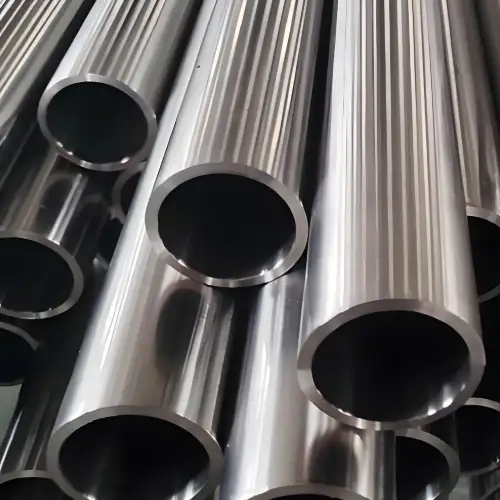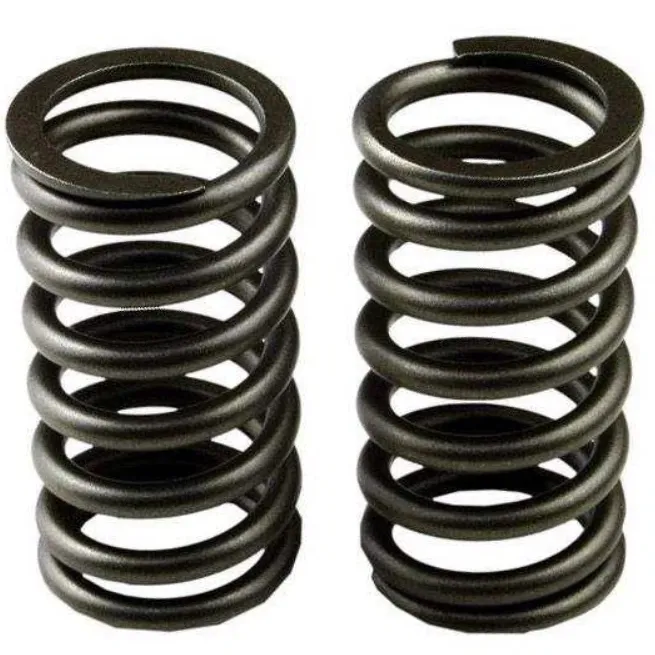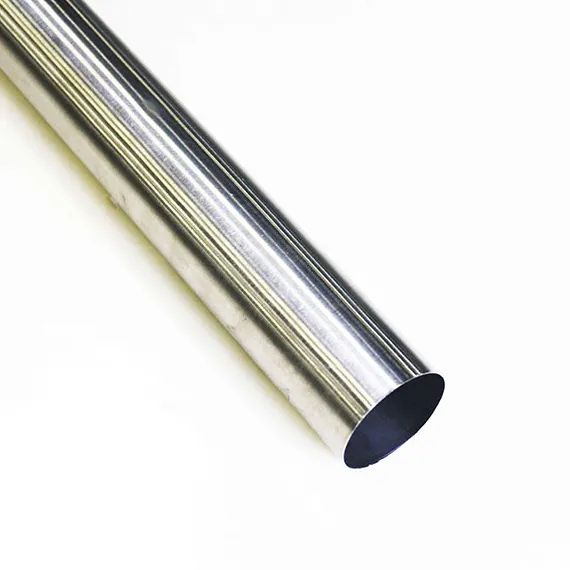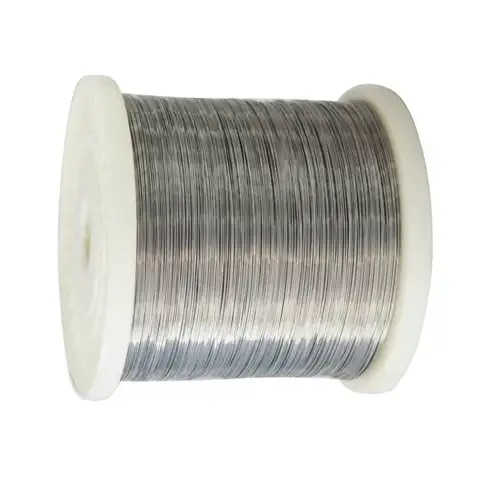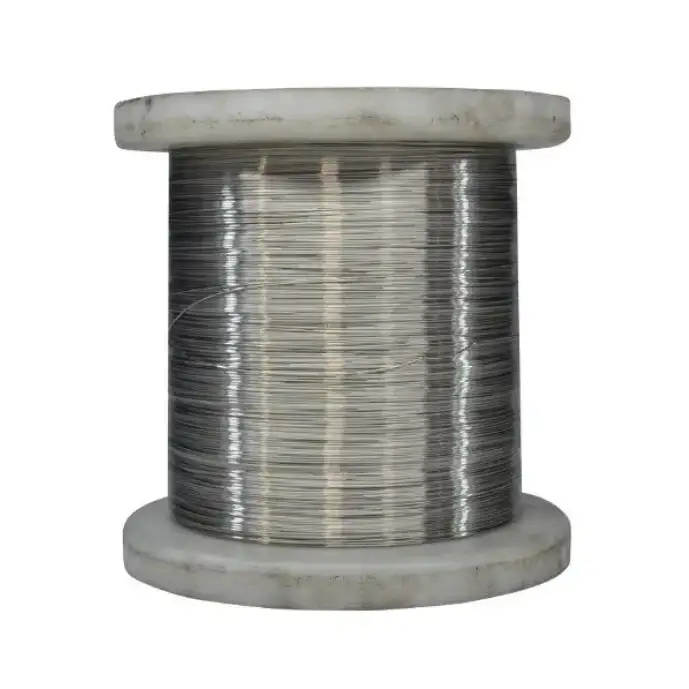416R is a purpose-made, low-sulfur, gun-barrel quality martensitic stainless steel; it combines excellent machining performance with adequate corrosion resistance for many firearm and precision-engineering barrels. For customers who prioritize tight tolerances, consistent bore finish, and fast production turnaround, 416R offers a cost-effective compromise between high machinability and corrosion resistance. MWAlloys supplies precision 416R round bar and barrel material from China with direct factory pricing, ready stock, and rapid dispatch for standard sizes.
What 416R is — definition and typical uses
416R is a variant of AISI 416 stainless steel engineered and finished for gun-barrel and related precision applications. It retains the core character of 416 (a martensitic, chromium-bearing, free-machining grade) but with lower sulfur and processing targeted at consistent grain, pre-hardening, and nondestructive testing to meet barrel-quality expectations. Typical uses: rifle and pistol barrels, firing pins and bolt components, precision shafts, and other turned parts that need both high machinability and reasonable corrosion resistance.
Chemical composition and what the “R” denotes
Standard AISI/ASTM 416 chemistry centers on roughly 11–13% chromium, moderate carbon (usually ≤0.15–0.20%), and added sulfur/phosphorus to boost machinability. 416R is differentiated by tighter control on sulfur (reduced from conventional free-machining levels), refined inclusion control, and sometimes small additions or tighter limits on elements such as molybdenum or vanadium depending on proprietary mills. The “R” label is an industry suffix used by several suppliers to indicate “barrel-quality” (pre-hardened, lower-S, strict inspection). Suppliers often test 100% of bar stock by eddy-current/ultrasonic methods to verify freedom from critical subsurface defects.
Typical composition (representative — manufacturer datasheets will give exact numbers):
| Element | Typical 416 nominal (%) |
|---|---|
| Chromium (Cr) | 11.0 – 13.0 |
| Carbon (C) | 0.08 – 0.15 |
| Manganese (Mn) | ≤ 1.00 |
| Silicon (Si) | ≤ 1.00 |
| Phosphorus (P) | ≤ 0.04 |
| Sulfur (S) | 0.15 – 0.35 (416R: lower end & tighter control) |
| Nickel (Ni) | ≤ 0.60 |
| Molybdenum/Vanadium | trace or per proprietary blends (occasionally) |
Note: Always confirm mill certificates (MTC) for exact lot chemistry before procurement.
Mechanical properties and heat treatment
416R is usually supplied in a pre-hardened condition suitable for machining (typical hardness ranges from RC 26–32 for hot-worked bar) and can be heat treated to higher hardness when required. Typical mechanical properties (annealed / tempered ranges) depend on processing; common shop figures:
-
Tensile strength: ~650–900 MPa depending on temper and cold work
-
Yield strength: ~350–700 MPa depending on temper
-
Hardness: RC 18 (annealed) up to RC 32 (pre-hardened), can be hardened higher with quench & temper cycles
Because barrels often undergo straightening, final machining, and sometimes cryogenic or nitriding operations, suppliers normally supply material that allows predictable and uniform hardening behavior. Request hardness and tensile data on the mill test certificate.
Why 416R for barrels — strengths and limitations
Strengths:
-
Excellent machinability thanks to controlled sulfur and microstructure permitting high material removal rates and tight tolerance finishing.
-
Intrinsic corrosion resistance better than plain carbon barrel steels (e.g., 4150) because of chromium content, which helps in storage and in the field.
-
When heat treated and finished properly, 416R barrels can achieve competitive accuracy and surface finish, with consistent bore geometry across lots.
Limitations:
-
Barrel life (measured in rounds to throat erosion) tends to be lower than high-hardness, chrome-moly carbon steels that are purpose-made for maximum service life (e.g., certain chrome-moly or nitrided 4150 variants). For high-volume, full-auto, or dedicated long-life military applications, chrome-lined or heavy-duty carbon barrel steels may retain an edge.
-
Corrosion resistance while better than plain carbon steels is inferior to higher-nickel stainless alloys (e.g., 17-4PH, 316) in extreme marine conditions. Consider coatings or stainless grades with higher nickel or molybdenum when corrosion is critical.
Practical conclusion: For precision hobbyist rifles, competition barrels, and many tactical/police applications where accuracy and machinability are prioritized, 416R is frequently chosen. For maximum barrel life and extreme wear resistance, consider nitriding, chrome lining, or alternative substrate steels.
Manufacturing notes: machining, stress relief, nondestructive testing
Machining: 416R machines easily on lathes and CNC turning centers; recommended practices include using sharp carbide inserts, relatively high feed rates for roughing, and fine finishing passes to preserve bore finish. Manufacturers often specify stress-relieving after rough turning to minimize distortion in final honing and rifling operations. Many barrel makers prefer tempering at controlled temperatures to achieve consistent hardness prior to rifling.
Nondestructive testing: Barrel-quality bar is commonly subjected to 100% eddy-current (roto-bar) testing and ultrasonic scans to detect seams, laps, or internal defects. Relevant ASTM/industry practices for ultrasonic and eddy-current testing of wrought bars include ASTM E2375 (ultrasonic practice for wrought products) and eddy current guides such as ASTM E2884; many suppliers will issue test certificates confirming passing inspection. If buyer specifications require, request copies of NDT records with lot shipment.
Straightening and residual stress: Controlled straightening and stress relief improve machining accuracy. Overheating during hardening can cause decarburization or grain coarsening; reputable mills control thermal cycles and certificate grain size (often by ASTM E112 reference) and hardness.
Barrel finishing, surface treatments, and bore protection
Common finishing and treatments applied to 416R barrels:
-
Nitriding: Gas or salt nitriding increases surface hardness and wear resistance without heavily altering core toughness; popular where improved service life is desired.
-
Cryogenic treatments: Some shops perform deep cryo after rough machining to stabilize microstructure before final finishing; effect on barrel life is debated but can reduce residual stresses.
-
Chrome lining: Typically applied to carbon steel barrels; less common on stainless barrel systems but can be used in hybrid designs.
-
Polishing and lapping: Final bore lapping and polishing yield the surface finish required for accuracy and reduce fouling. For stainless bores, attention to cutting fluids and corrosion passivation is needed.
When specifying treatments, balance: nitriding improves life but may slightly alter bore dimensions; always specify post-treatment final bore size and perform final honing after treatments where tightest tolerances are essential.
Comparison with common alternatives
| Material | Typical advantage | Typical disadvantage |
|---|---|---|
| 416R | Excellent machinability, barrel-quality testing, decent corrosion resistance | Lower extreme wear life than some carbon barrel steels |
| 416 (standard) | Very good machinability, widely available | Higher sulfur variation; not always pre-hardened or NDT-tested |
| 4150 / 4140 carbon steel | High wear resistance and long life, widely used for heavy-duty barrels | Requires coatings/nitriding and more rust protection |
| 17-4PH | Superior corrosion resistance and strength when aged | Harder to machine; more costly; sometimes over-spec for barrels |
| LW50 / proprietary ordnance stainless | Designed for both life and corrosion resistance | Often proprietary and costlier; limited sources |
The tradeoffs are simple: choose 416R where machining accuracy and surface finish matter most; choose high-strength carbon steels or specialty ordnance steels when absolute barrel life under intense firing cycles is the top priority.
Procurement, lead time, and MWAlloys offering
MWAlloys provides 416R round bar and finished barrel blanks from our Chinese production network with these commercial advantages:
-
Factory direct pricing: 100% factory price — no trading middlemen.
-
Stock availability: Standard diameters and lengths kept in inventory for fast dispatch; custom OD/lengths manufactured to order.
-
Quality control: Material supplied with full Mill Test Certificates (chemical + mechanical), and 100% eddy/UT testing when requested.
-
Logistics: Rapid export packing and flexible shipping (air for small urgent orders, sea for bulk).
If you require sample bars for qualification tests (straightness, hardness, NDT), MWAlloys can provide small qtys at competitive price to accelerate qualification. (Contact details and commercial terms are supplied privately upon request.)
2025 global price comparison
Method: prices vary by form, diameter, lot size, and region; the table below combines public market summaries (MEPS world stainless prices, Fastmarkets outlook), retail bar listings (OnlineMetals), and marketplace indicators (Alibaba) to present representative 2025 mid-year ranges for small purchase (retail/small batch) and bulk ex-works prices. Always request a firm quote from supplier and confirm surcharges, freight, and minimum order quantity.
| Region / channel | Typical 416/416R price range (USD per kg) — small qty | Typical bulk ex-works (USD per kg) |
|---|---|---|
| USA — retail small cuts (OnlineMetals) | $10 – $18 / kg (small cut pricing varies by length/diameter) | — |
| China — Alibaba / exporter listings | $2.0 – $6.0 / kg (large MOQ can push lower) | $1.8 – $4.0 / kg (bulk tonnage, ex-works) |
| India — domestic mills / traders | $2.5 – $6.5 / kg (depends on import duties & local demand) | $2.0 – $4.5 / kg |
| Europe — distributor/stock | $6.0 – $12 / kg | $4.5 – $8.0 / kg (bulk) |
| Global benchmark (MEPS world stainless index approximate ranges) | n/a (grade-specific premiums vary) | See MEPS world prices (monthly series) |
Buying tips:
-
Retail cut prices (OnlineMetals) are useful for prototyping but not indicative of bulk contract pricing.
-
Chinese factory offers on marketplaces can appear very low; verify actual mill test certificates, NDT, and incoterms. Alibaba listings often show FOB/CIF starting prices with minimum order quantities.
-
For engineering/defense programs, require 100% NDT records and traceability; that often increases unit price but avoids in-service failures.
Practical selection checklist and maintenance
Selection checklist before purchase:
-
Confirm exact alloy and lot chemistry on MTC.
-
Specify required temper/hardness and whether the supplier should perform pre-hardening.
-
Request 100% eddy or ultrasonic inspection report for barrel-quality stock.
-
State post-treatment requirements (nitriding, cryo) and whether final honing will be performed after treatment.
-
Agree final acceptance tolerances: OD, straightness, hardness, grain size.
Maintenance & service life tips for 416R barrels:
-
Use appropriate cleaning solvents and prevent long-term salt/moisture exposure.
-
Monitor throat erosion (shots fired) when used for high-pressure cartridges; consider nitriding to extend service life.
-
Store with light oil and silica desiccant if in humid climates; stainless resists rust but is not immune to corrosive electrolytes.
FAQs
-
Is 416R the same as 416?
No — 416R is a barrel-quality variant with tighter sulfur control, pre-hardening, and NDT to meet barrel makers’ requirements. -
Can I chrome-line a 416R barrel?
In principle yes, but chrome lining is more commonly applied to carbon steel barrels. If chrome is required, specify post-chrome final bore and perform testing after plating. -
Which is better for accuracy: 416R or 4150?
416R often yields better initial accuracy due to machinability and surface finish; 4150 may give longer life under extreme sustained fire. Choose by application. -
What NDT do you recommend for barrel stock?
100% eddy-current (roto-bar) plus spot ultrasonic scanning per purchaser specification; cite ASTM E2375/E2884 practices when demanding formal procedures. -
Is 416R corrosion-proof?
No metal is completely corrosion-proof. 416R resists corrosion better than carbon steels but is not as resistant as high-nickel stainless grades. -
Can 416R be hardened?
Yes — 416R can be heat treated to boost hardness; typical pre-hardened bars arrive RC ~26–32. Final quench/temper cycles must be controlled to avoid distortion. -
Is 416R suitable for marine deployment?
For short exposures it is fine; for prolonged marine exposure pick a higher-nickel or molybdenum stainless (e.g., 316/17-4PH) or protect with coatings. -
What finishing do MWAlloys offer?
MWAlloys supplies raw bar, pre-hardened blanks, and can coordinate nitriding/hardening and NDT per contract. Contact for details. (Commercial terms private.) -
How soon can MWAlloys ship standard diameters?
In-stock standard rounds ship from our Chinese warehouse within days; custom orders depend on mill lead time. (Exact ETA provided with quote.) -
Do you provide test reports?
Yes — MTC, hardness, and NDT reports are available with shipments on request.
Authority enhancement — standards and testing
To strengthen technical credibility, mention standards and practices that buyers commonly reference:
-
ASTM E2375 — Practice for Ultrasonic Testing of Wrought Products (useful for bar inspection).
-
ASTM E2884 — Guide for Eddy Current Testing (sensor arrays and EC practice).
-
ASTM/industry acceptance criteria for grain size and tensile properties (refer to ASTM E112 for grain size reference).
Final practical recommendations
-
For prototype or small runs where finish and accuracy dominate, order 416R with full NDT and pre-hardening.
-
For high-rate or extreme-life barrels, evaluate hardened carbon steel substrates and advanced surface treatments.
-
Always demand MTCs and NDT certificates; they are inexpensive insurance relative to in-service failures.

